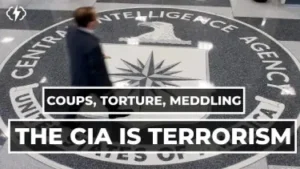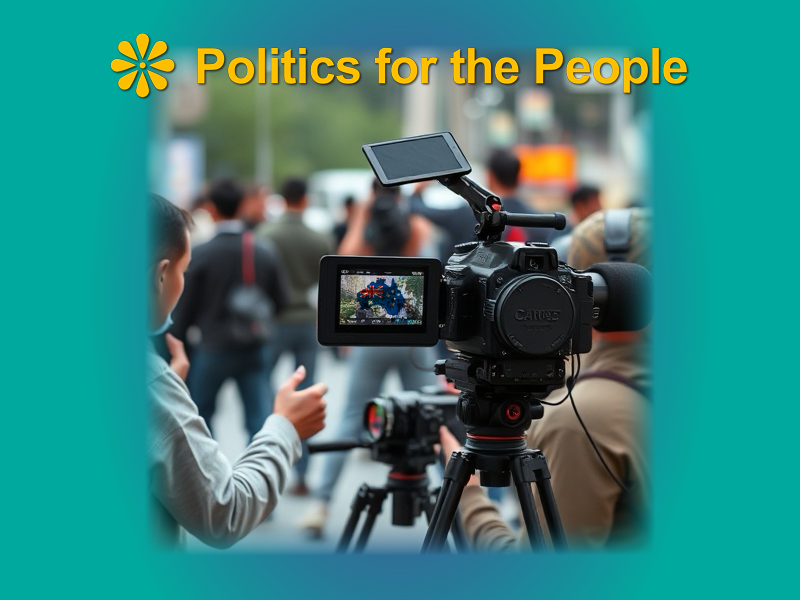Introduction: Questioning the Established Narrative on China
Unravelling the China threat narrative and the influence of the CIA & U.S. military-industrial complex on the portrayal of China as a global threat.
The CIA’s Role in Shaping Perceptions
Historical Manipulations of Media
The CIA has a well-documented history of manipulating media narratives to align with U.S. foreign policy goals. Instances revealed through declassified documents show the agency’s involvement in covert operations designed to sway public opinion and policy decisions globally. These operations raise questions about the authenticity and impartiality of the information the public receives, especially concerning international actors like China.
Impact on Current China Narratives

In the context of China, it is essential to scrutinize the narratives presented in the media critically. The historical precedence of CIA interventions in media suggests that current portrayals of China may also be influenced by agendas that serve specific strategic interests rather than objective realities. This manipulation aims to shape public belief to justify geopolitical strategies, which might include containment or confrontation.
The Military-Industrial Complex and Its Interests
Economic Gains from Heightened Tensions
The relationship between heightened geopolitical tensions and economic gains for the U.S. military-industrial complex is stark. This complex — a formidable alliance between defence contractors, the military, and at times legislative bodies — profits immensely from an adversarial relationship with China. With a defence budget that topped $842 billion in 2023, there are clear financial incentives to support and even escalate a narrative of threat, which in turn justifies further increases in military expenditures.
Comparative Analysis of Global Military Actions
Comparing the military actions of the U.S. and China post-World War II highlights significant differences in their global engagement strategies. The U.S. has been involved in numerous conflicts around the world, often with high civilian casualties and questionable outcomes, such as in Iraq and Vietnam. Conversely, China has taken a more conservative approach to military intervention. This contrast prompts a re-evaluation of which actions—and which narratives—truly contribute to global instability.
Reassessing the Threat: Who Benefits?
Reevaluating the ‘China Threat’
These narrative benefits specific groups within the U.S., particularly those involved in defence and security policy. By portraying China as an aggressive and expanding power, these groups can mobilize public and political support for defence strategies that inherently involve significant military spending and complex security arrangements. This narrative serves not only to protect national interests but also to sustain industries that depend on continued government contracts and spending.
The Power of Narrative in International Politics
Narratives in international politics often serve as tools for shaping global order and domestic policy. The portrayal of China as a threat has significant implications for international relations, affecting everything from trade policies to alliances. Understanding the construction and purpose of these narratives is crucial for the public to grasp the broader geopolitical chess game that influences these portrayals.
Conclusion: Seeking Truth Beyond Narratives
The narrative of China as a global threat is interwoven with the interests of influential entities like the CIA and the military-industrial complex. It’s essential for the public to critically assess these narratives and consider their broader implications for global stability and international relations. By understanding the motivations behind these stories, citizens can foster a more informed and nuanced view of global dynamics.
FAQs About Global Narratives and China
– What role does the CIA play in media manipulation? The CIA historically has used its resources to influence media narratives to support U.S. foreign policy.
– How does the U.S. military-industrial complex benefit from a China threat narrative? It justifies substantial defence budgets and secures contracts for defence industries, driving economic activity in this sector.
– Is China’s global behaviour more aggressive than other superpowers? Historical data and recent actions suggest that China has been less militarily aggressive compared to the extensive overseas military involvements of the U.S.
Question for Readers
Do you believe the fear of China is substantiated, or could it be a product of Western propaganda? What motivations might lie behind the narratives we encounter in the media?
Call to Action
Approach news and narratives with a critical mindset. Investigate the underlying motives behind the stories you read and engage in informed discussions. Share this article to help others understand the complexity behind the headlines and promote a more informed public debate.

